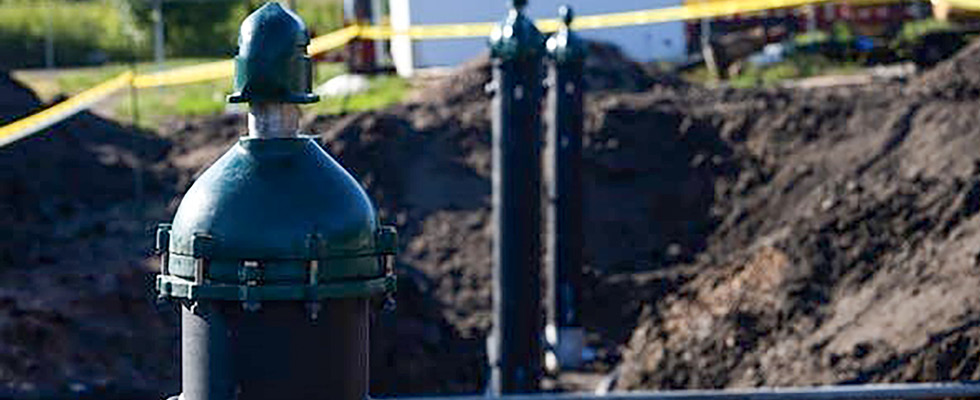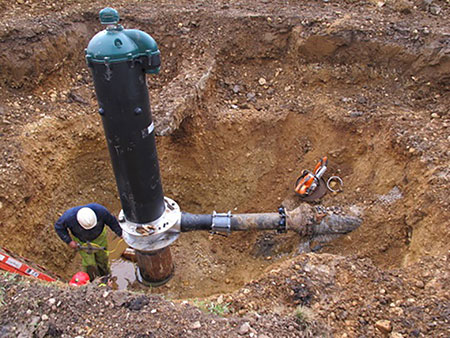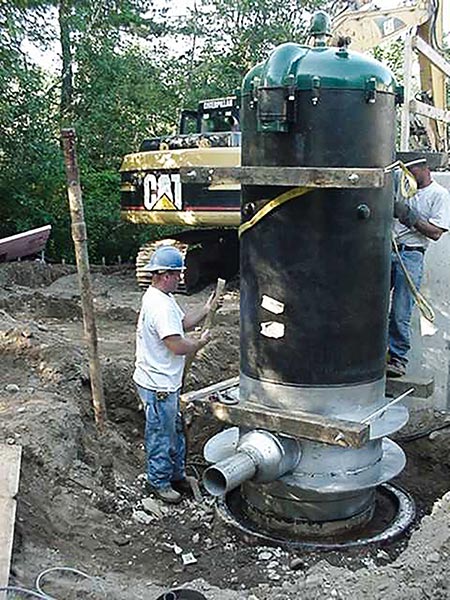
For those of us who work in the water industry, there is the saying of “no water, no life,” which applies equally to humans and our businesses. This is especially critical to the rural population and residents of arid locations who rely solely on groundwater for their source of potable drinking water and for crop irrigation. Areas with limited surface water rely heavily on groundwater to support daily life for all purposes.
With groundwater providing just over half the drinking water for the global population, we must be critical of our own usage, as well as industrial and agricultural use. The activities and products that companies and well drillers rely on can have an adverse effect on our lives if we do not consider the impacts we may be having on the sources of our water.

What is groundwater? Simply put, groundwater is water contained below the grade in the subsurface spaces between rocks and gravel, as well as contained in aquifers below the water table. Groundwater is critical for potable drinking water and irrigation purposes, and it is highly prized for geothermal and industrial uses for activities such as mining. Some activities can be a detriment to groundwater, such as runoff pollution, while others are actively improving aquifers with forced recharging.
We can all be responsible for water use, whether a source of drinking water comes from a simple pitless adapter on a home well or is sourced from a large municipal water supply originating from a large municipal well or surface water. While our own personal uses of water can have an impact on groundwater, forces outside of our control can often have a much greater impact. The foods we eat can be using massive quantities of water in arid areas, causing the ground to slide down as an aquifer collapses (Image 4). Should we be selecting foods based on where they are grown and the amount of potential impact on the aquifers supporting them? That is for every individual to decide, but we can and should be more responsible for our actions regarding how we use water.
What can we in the industry do, though? We as industry insiders want to keep making products so we stay in business. A well driller needs to drill new wells for homes and municipalities, and manufacturing companies need to make pitless units so pump companies can make more pumps to push that water for homes and industry to accommodate the growing population.
So, what is to be done? We have our own voices, which should be put to good use. We keep these products in business, but not at the cost of damaging the source of our income—groundwater. We should be collectively using our voices to express how we can improve humanity while still making forward progress. We want development, like mines, which require products from all walks of the groundwater industry, but they need to be developed intelligently with proper regulations to prevent overproduction from groundwater and pollution back into the water sources. For cities utilizing large wells and even surface water, the water and wastewater systems need to be updated. An updated water system will have less potable water, less through leaking systems and less pollution from wastewater systems that could contaminate the source water.


As professionals in the water industry, we should be encouraging our elected officials to guarantee that fair environmental regulations are met by all industries. This not only ensures we have safer drinking water sources—it ensures our businesses continue to thrive. By doing this, we are protecting our businesses as well as human life. We should encourage new developments such as copper mines, as they require our services, and the products they bring to market help move society forward. However, we need to use our collective knowledge of groundwater to make sure new development safeguards the water supply we rely on for our living. We should be taking advantage of improvements in water technologies. These technologies allow us to utilize the tools in our industries to help do things such as aquifer replenishment while at the same time giving consumers better choices.
This is not a call to action but rather something we can collectively be working toward in a slow and deliberate way. We all want the groundwater industry to thrive and continue to provide clean and safe water to the roughly 50% of the world that relies on what we produce. To keep doing our jobs well, we need to protect the product we all collectively work together to provide.
Drillers, civil engineers, hydrologists, manufacturers and everyone who contributes to the groundwater industry: we all know how important this commodity is, which is why we should be the leaders. We should be working with officials to suggest new developments for cities, for mines, for agricultural applications. We need to protect the aquifers and groundwater from pollution, contamination and overpumping.
If we, the professionals who live and work in the groundwater industry, are not directing the path forward, we will be forced to be reactive to outside influences. The outside influences may have best interests elsewhere and may not be considering the potential impact on the water they drink. These interests may not be intentionally causing harm, but without good direction from groundwater industry insiders, compromises might have to be made. These compromises could make it harder to provide clean drinking water in the future or may even make our jobs more difficult. We are the stewards of our water.

